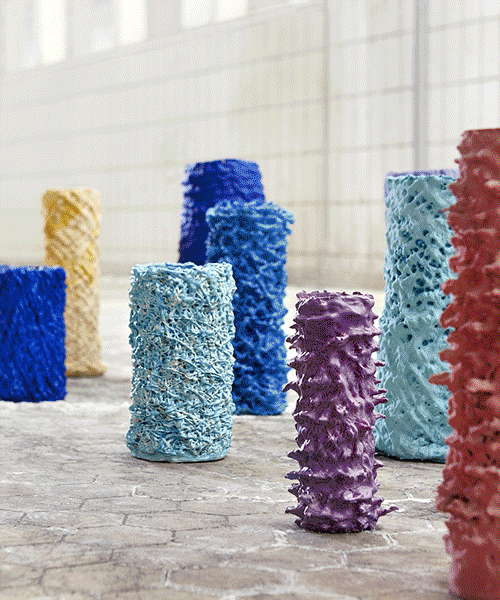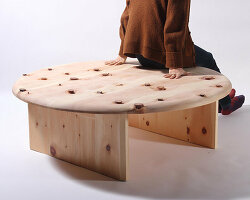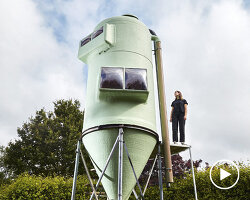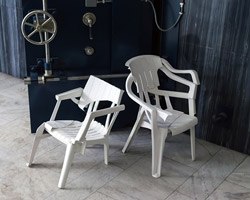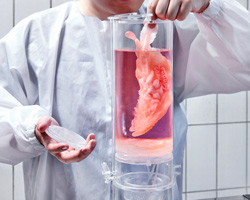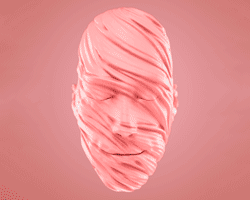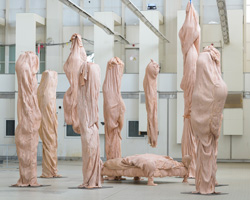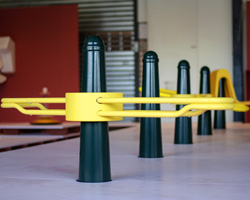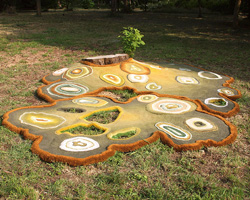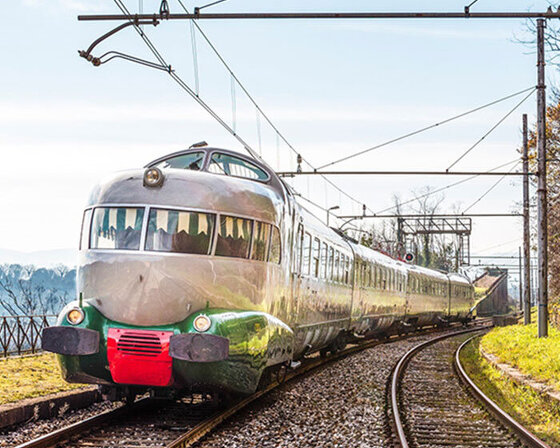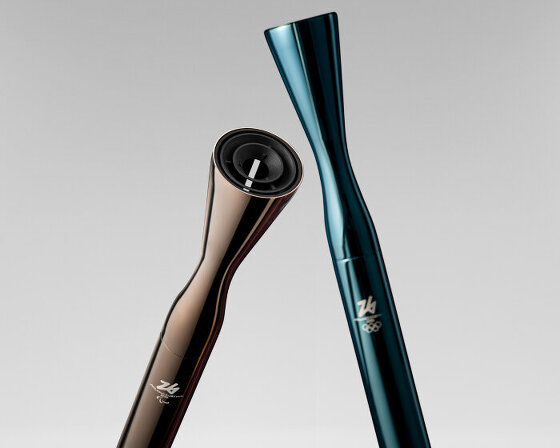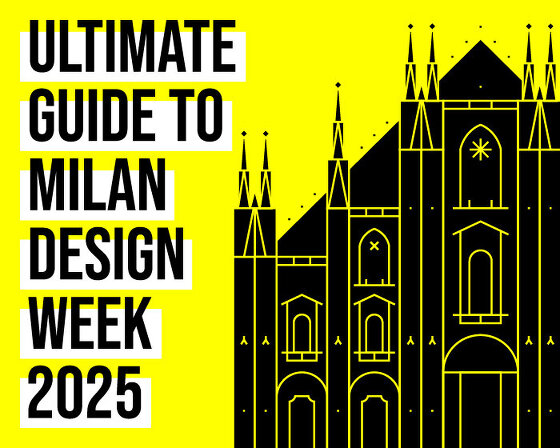during dutch design week, the design academy eindhoven presents its annual graduation show, comprising over 200 projects by 185 graduates. this year marked the first edition in almost two decades to take place outside the walls of the school, occupying a venue on the site of eindhoven’s historic campina milk factory, where projects addressing some the most important topics in today’s society immersed visitors in an exciting, and often bizarre, world of curiosity and innovation.
from 3D-printed animal parts to office furniture for those who prefer working laying down, designboom has picked the top 20 projects that caught our attention this year.
carla joachim & jordan morineau – MOCA
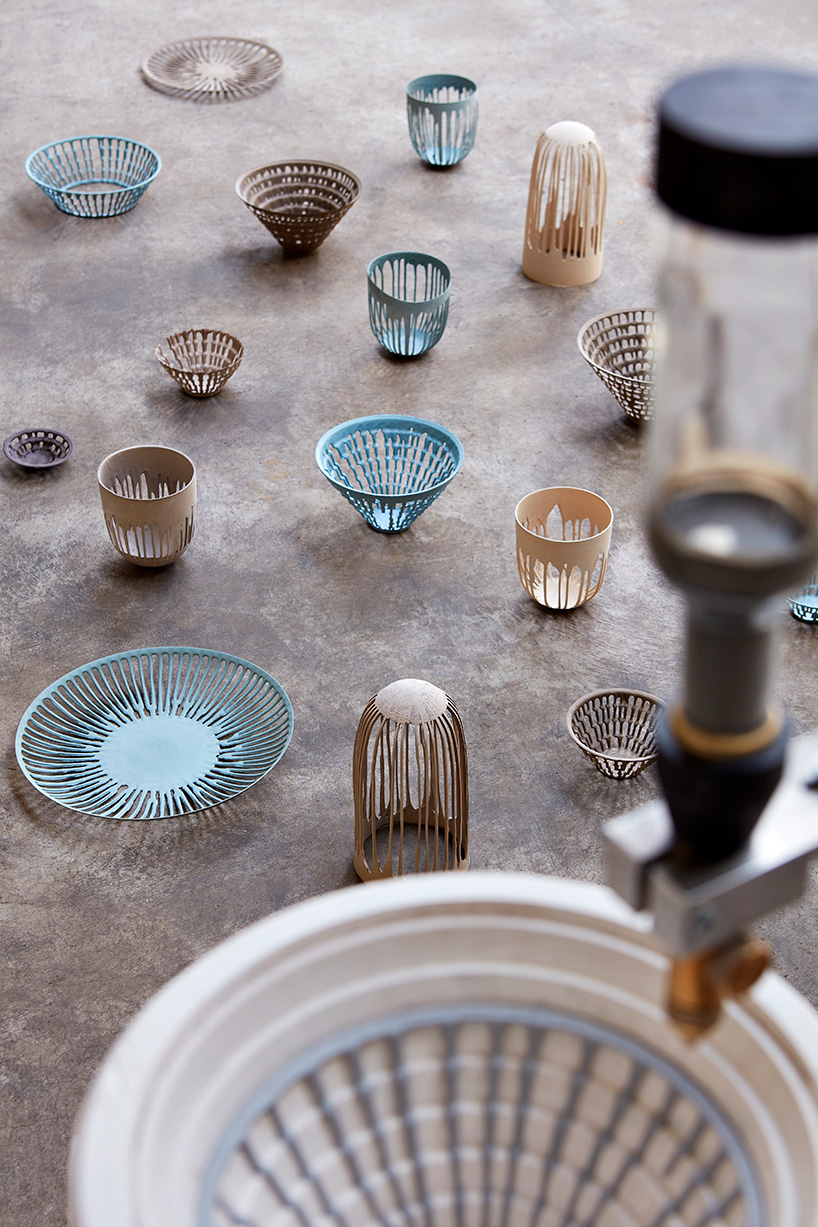 all images © design academy eindhoven
all images © design academy eindhoven
photo by ronald smits
in the MOCA ceramic series, man and activity graduate carla joachim and jordan morineau explore textures, open structures and patterns made possible by a custom-made dripping machine. interested in combining digital technologies and craft with a human touch, their new machine drips liquid porcelain through a nozzle with a diameter that can be changed, alowing them to create a new ceramic language. a code determines the speed and movement of the platform and thus the ceramic outcome, while possibilities can be exploited to produce a unique result every time.
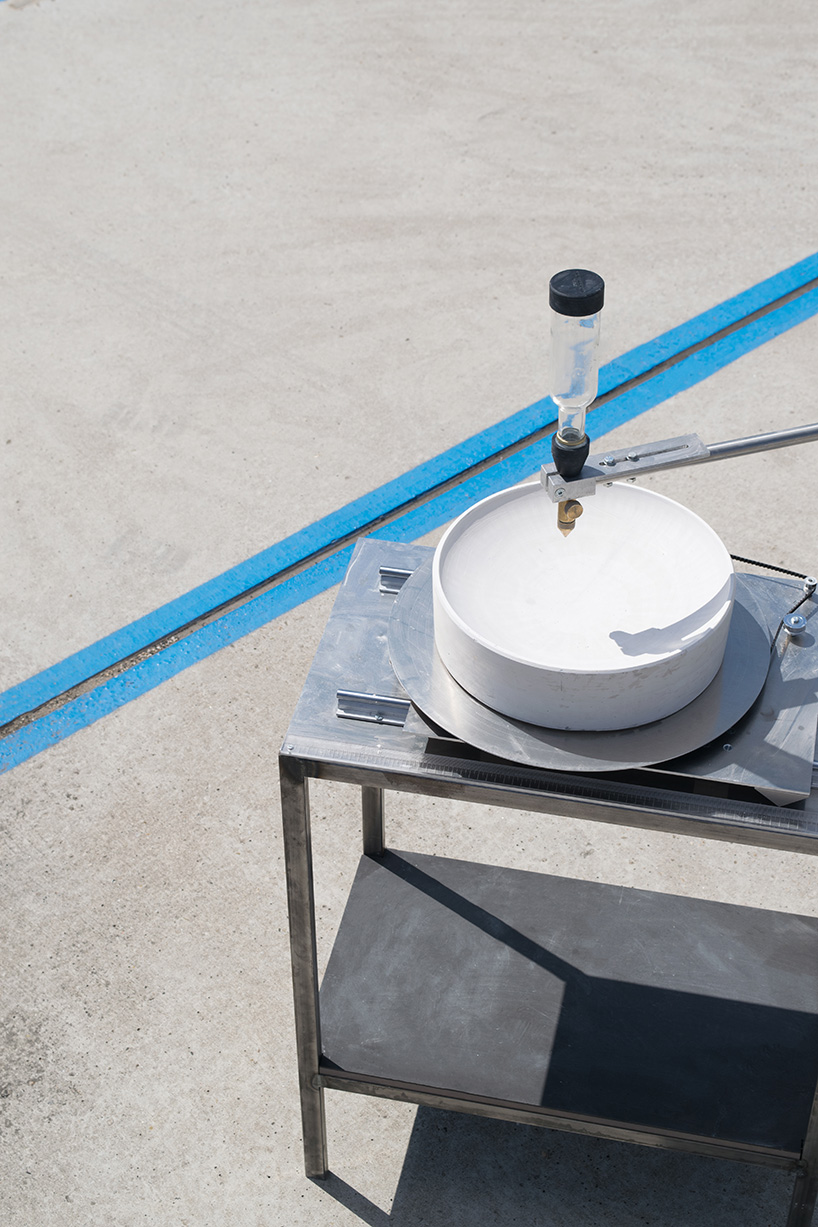
pierre castignola – copytopia
pierre castignola questions the benefits of the patent as part of the intellectual property system using one of the most recognizable objects of our time, the plastic garden armchair. though nobody knows who originally created the ubiquitous design, numerous remakes of it are currently patented, sections of which castignola has reassembled into one object to explore the ambiguous relationship between patent law and the freedom to create. (see designboom’s full coverage here)
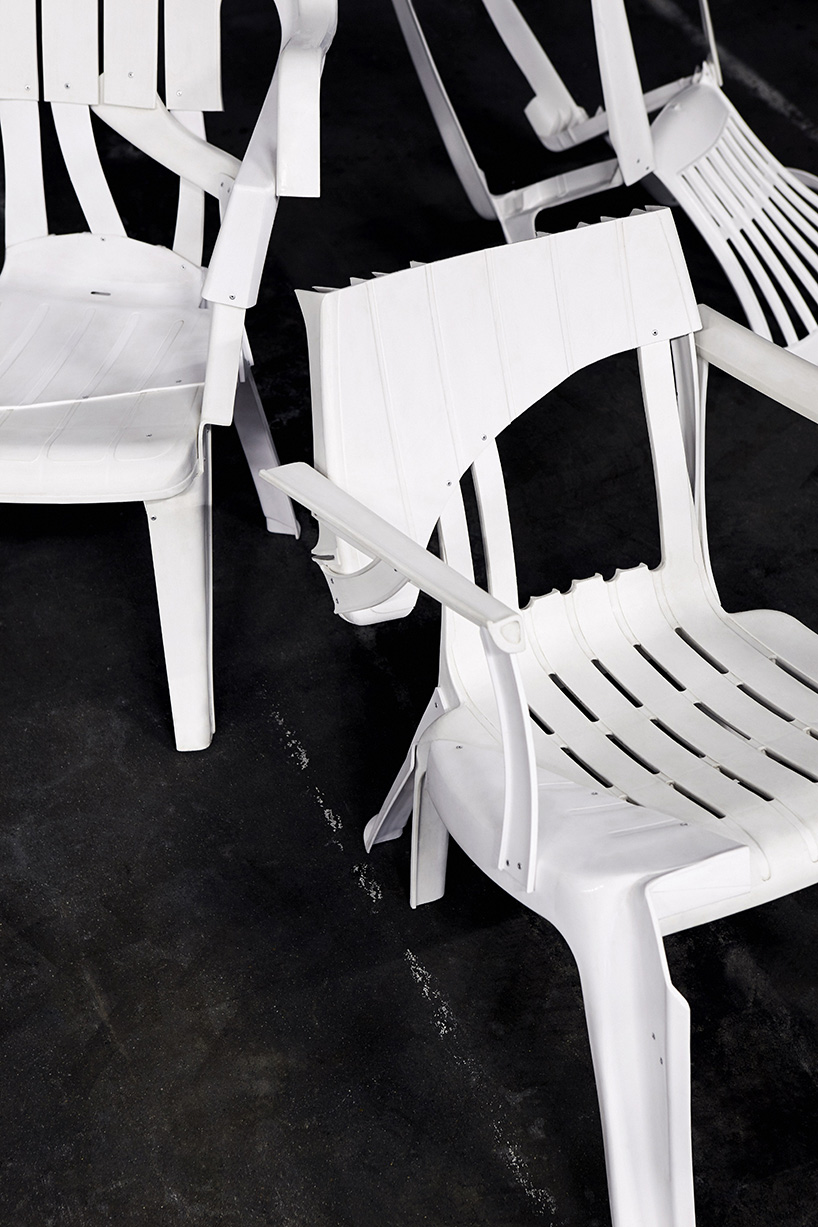 photo by femke rijerman
photo by femke rijerman
elissa sophia assaf – hues of saturation
elissa sophia assaf has translated repetitive digital images of the trash crisis in lebanon into ‘hues of saturation’, a series of ornamental architectonic ceramics that manifest decay as a disruptive form of art. part of the contextual design department, the project is created by digitally morphing the images from 2D to 3D, and milling these into plaster molds that capture their ephemeral nature into symbols of a serious ongoing problem. realised in collaboration with sundaymorning@EKWC.
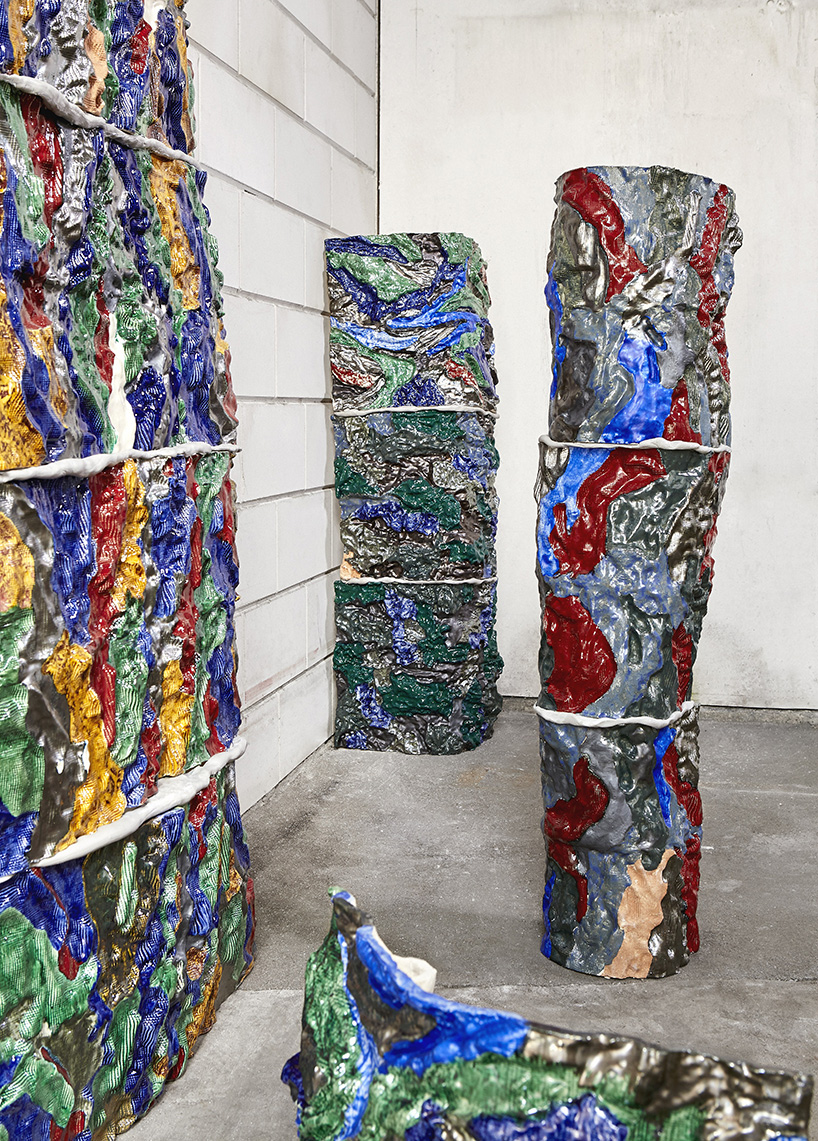 photo by femke rijerman
photo by femke rijerman
siri bahlenberg – guilty pleasure
in guilty pleasure, siri bahlenberg has created a series of interior objects that combine easily disposable materials that we all break, rip, tear, or crumple, with durable ones that are usually worth keeping. the contextual design department graduate has put together a bench using a wooden frame and paper upholstery will wear and tear over time, a side table made of melted hosiery that grows with each ripped pair, and rocks of concrete layered with fragments of a broken mirror.
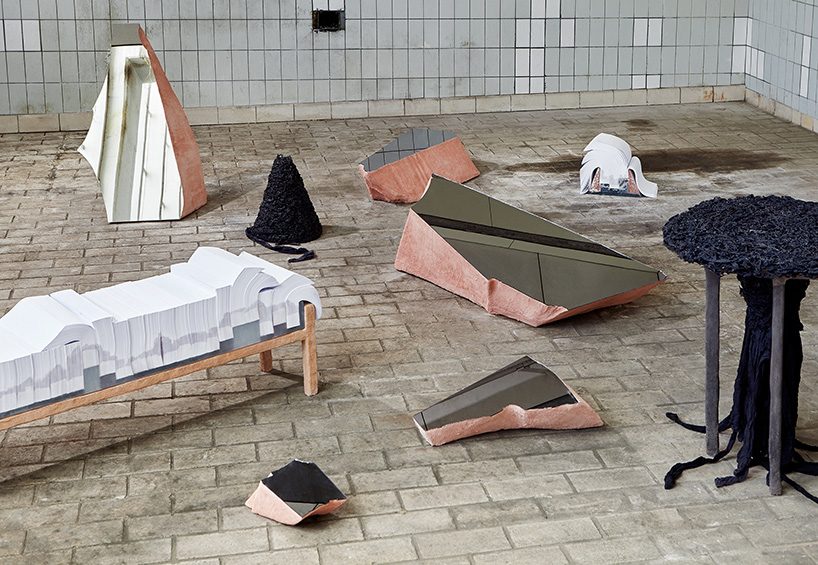 photo by femke rijerman
photo by femke rijerman
kuang yi ku – the tiger penis project
kuang-yi ku‘s tiger penis project employs emerging biotechnologies to create artificial animal parts traditionally used in chinese medicine, in order to avoid putting more wild animals in danger. the project offers an alternative which prevents the further eradication of animals while preserving traditional cultures and the values found in thousands of years of medical practice. (see designboom’s full coverage here)
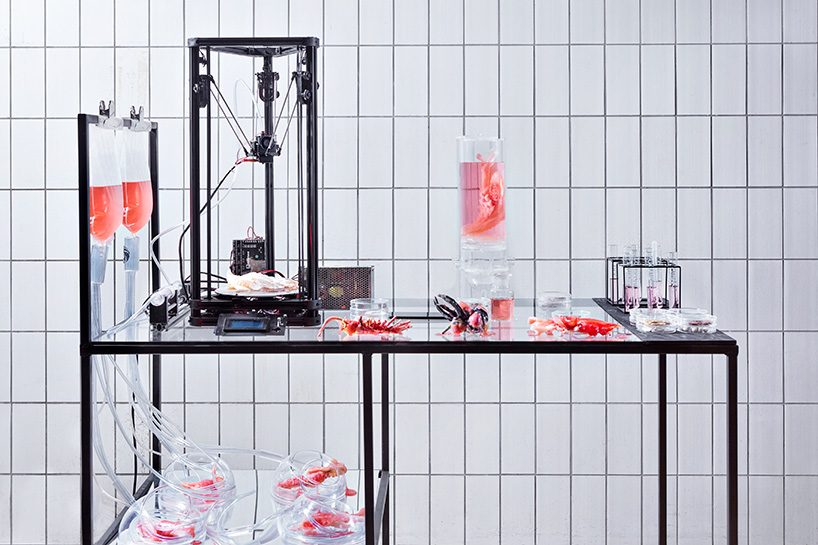 photo by by ronald smits
photo by by ronald smits
tessa spierings – echo
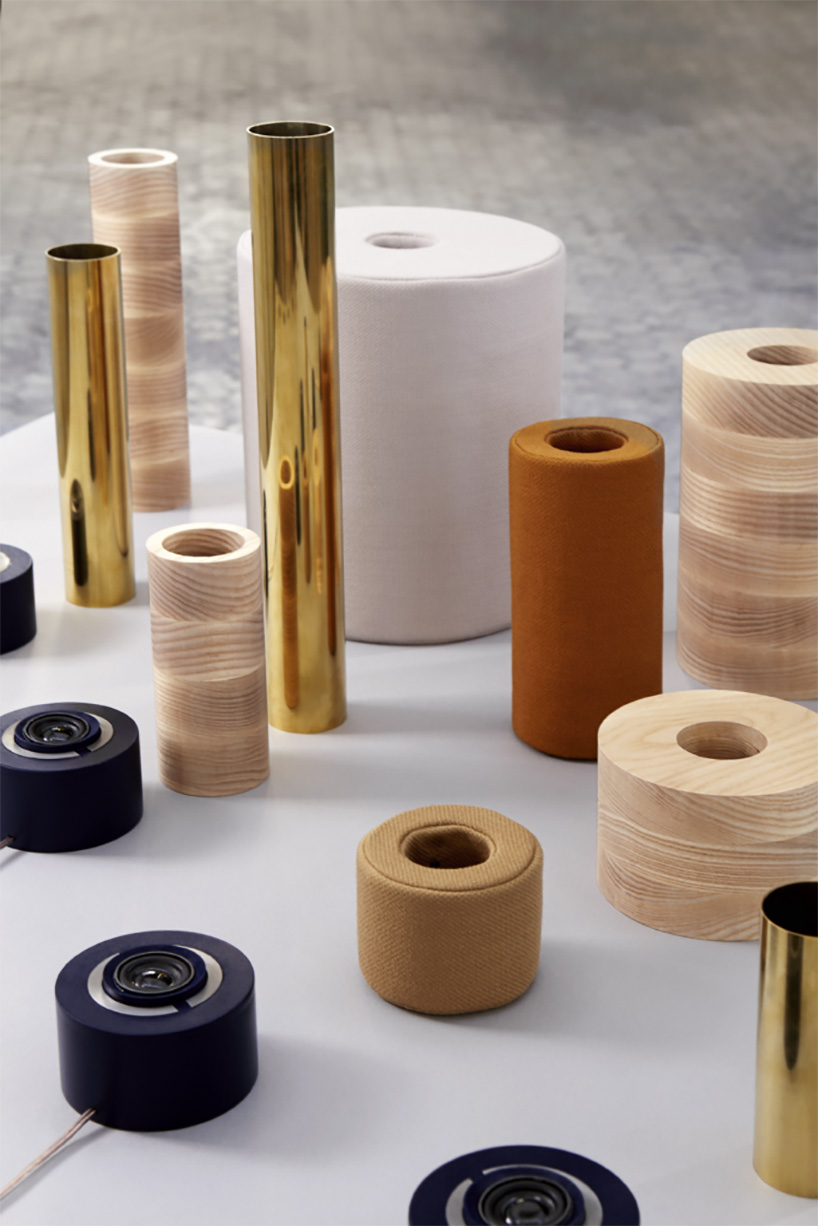
echo by man and activity graduate tessa spierings is a soundscape that makes acoustics visible and tactile through the placing of tubes in various materials and dimensions on matching speakers. doubling as performers and composers, users can connect each tube to one of the six 3D-printed speakers to create distinct sounds. tubes vary from wood, which creates a deeper tone, to brass, which makes it purer, and foam, that has a muffling effect, while variations in length and width allow the user to finetune his/ her masterpiece.
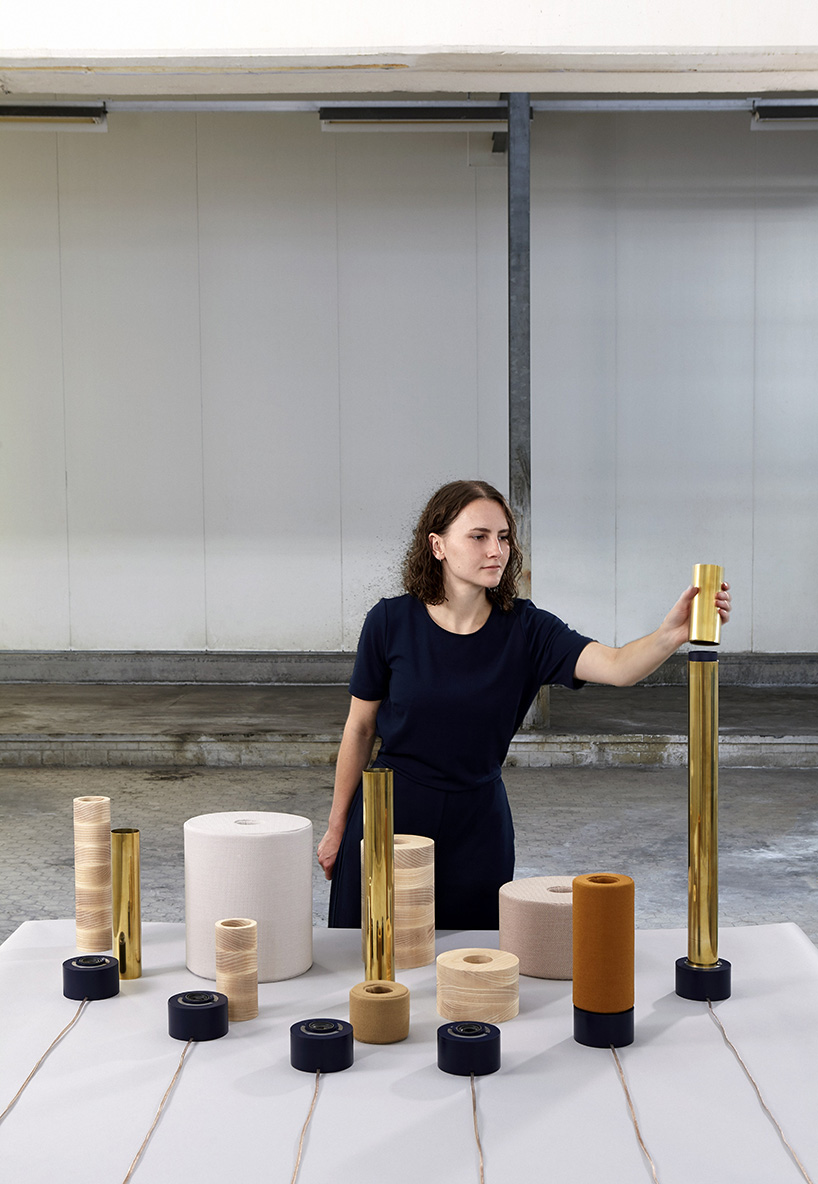 photo by femke rijerman
photo by femke rijerman
lukas saint-joigny – anatomic construction
part of the contextual design department, lukas saint-joigny‘s anatomic construction is a collection of functional objects that celebrate the unique hands-on approach of their maker. moving away from archetypal conventions of function and form, the quirky pieces have been created without a preconceived plan, shaped as they were growing by relying on the properties and possible functions of the material.
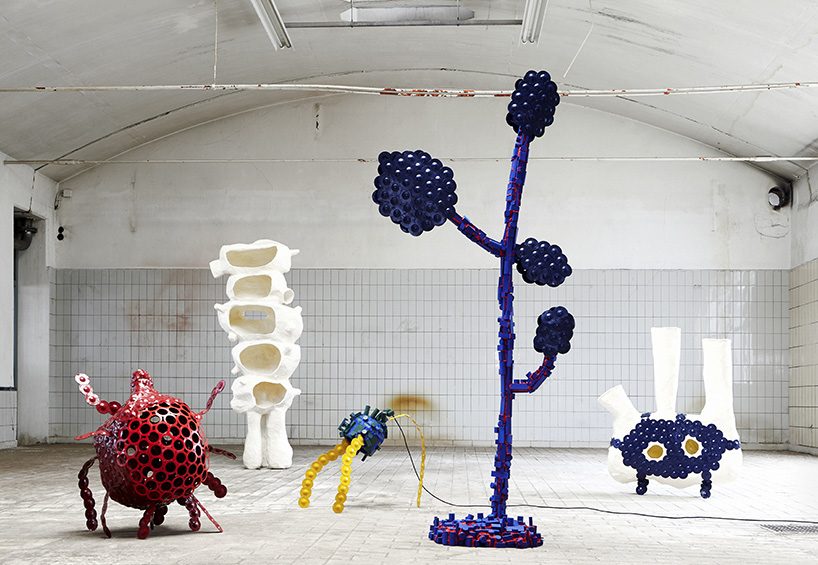 photo by femke rijerman
photo by femke rijerman
teddy schuyers – scentiment
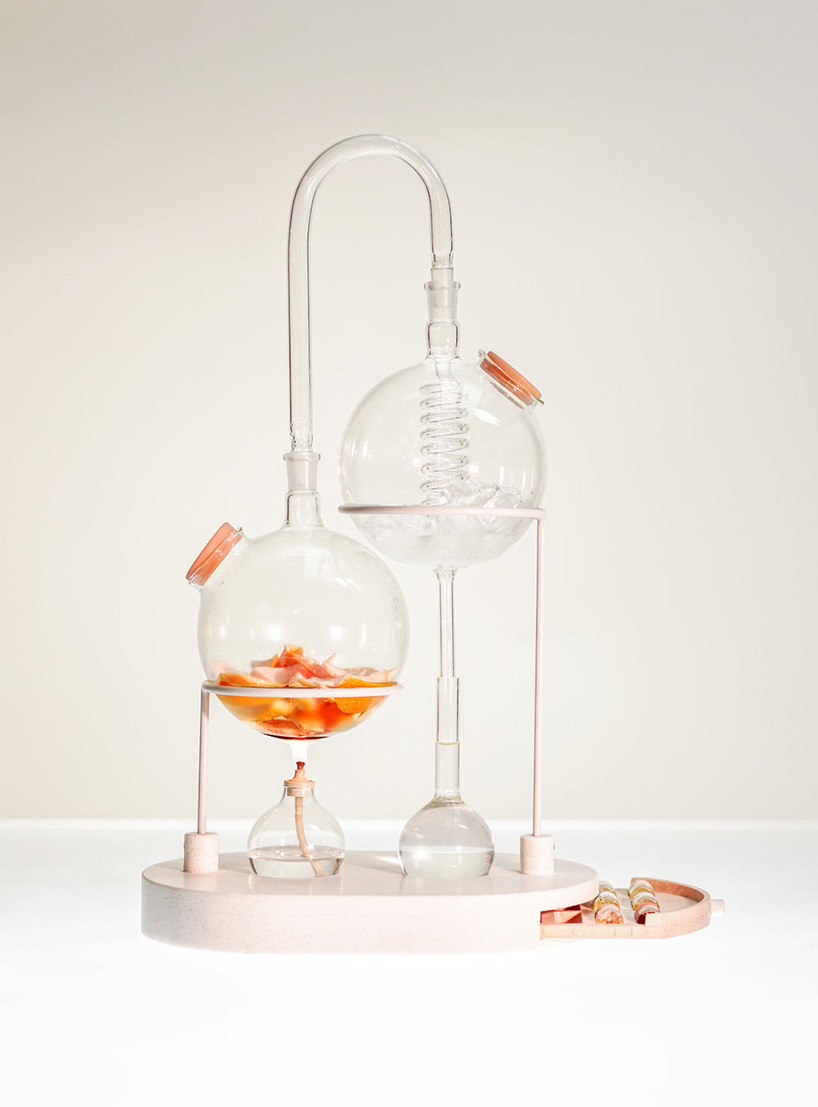 project photos by iris rijskamp
project photos by iris rijskamp
teddy schuyers has created a set that allows one to make their own perfume at home by distilling fragrant oils from natural ingredients such as orange peel, flowers, or pine needles. point to the fact that a bottle of the famous chanel no. 5 perfume sells for almost €90 in the store, but yet the scent itself only costs €2.13 to make, schuyers wants to enable everyone to whip up their favorite scent without depending on anonymous laboratories and inflated prices.
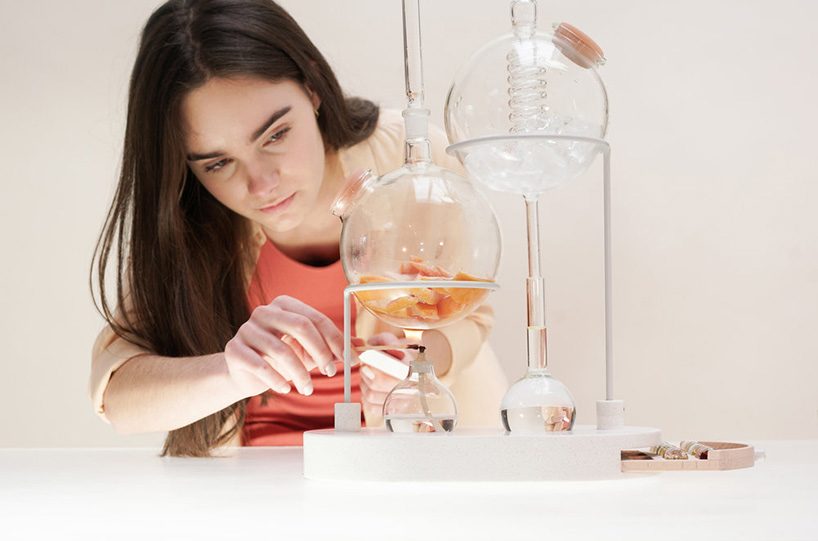
geoffrey pascal – grafeiophobia: unexpected office
with the belief that working should be a more playful and attractive experience, geoffrey pascal has created office furniture for those who find themselves when working away from the desk. part of the public private department, the project includes three pieces of furniture that recreate laid-back postures similar to those one adopts in bed. each piece is designed to be as close as possible to the ‘neutral body posture’ developed by NASA as the ideal resting position.
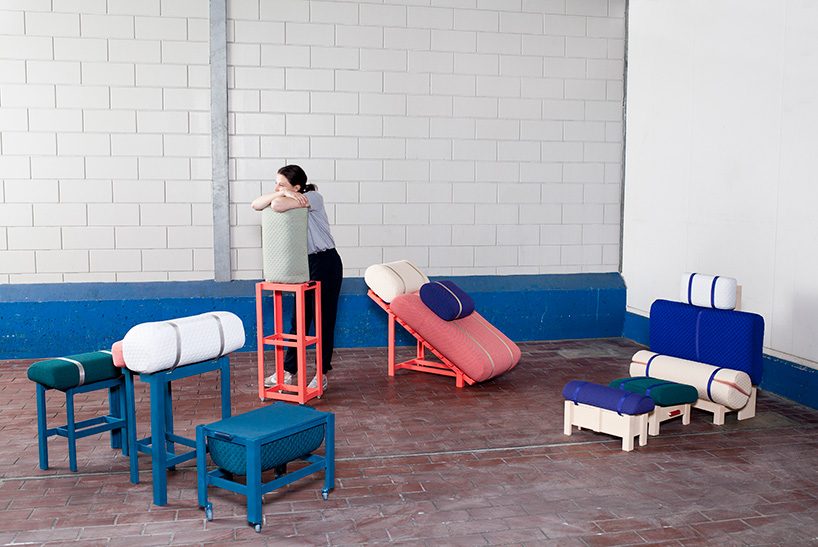 photo by iris rijskamp
photo by iris rijskamp
millie herpin – bliss.bis
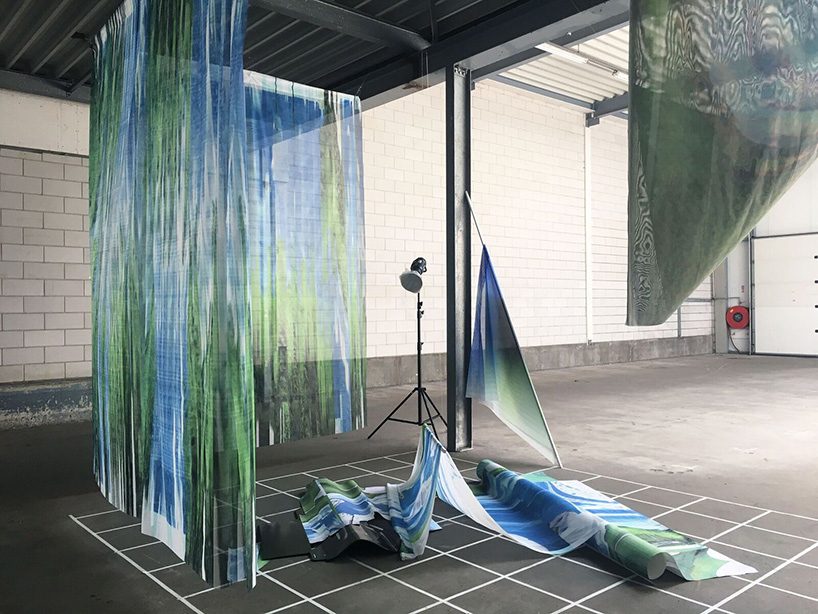 project photos by ronald smits
project photos by ronald smits
millie herpin‘s bliss.bis immerses the viewer in a dreamlike space through large fabric displays on which the iconic ‘bliss’ image background of windows XP has been digitally printed on. a graduate of the man and communication department, herpin questions our relationship with common objects and challenges the established criteria of what good design means by breaking free from mainstream representations of landscapes that usually depict a perfectly controlled nature.
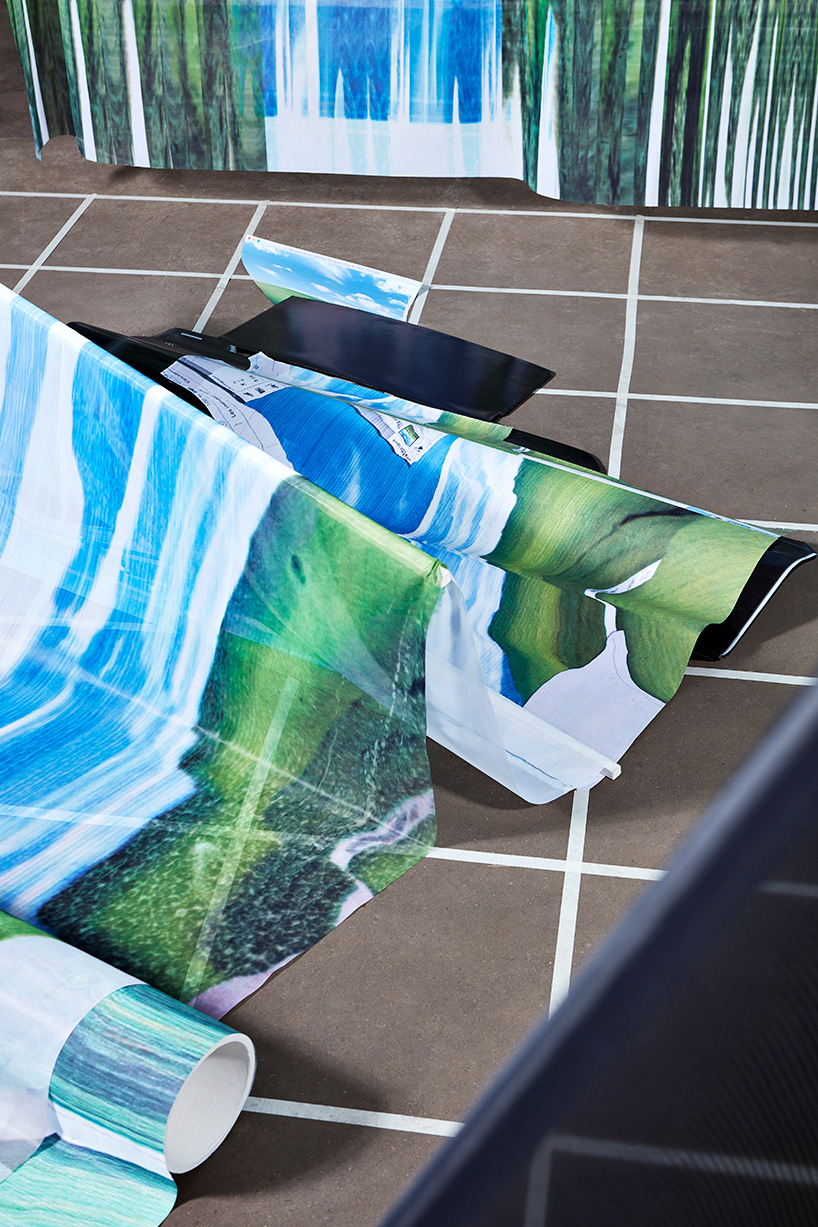
erika emerén – ornament now
contextual design graduate erika emerén has applied the crafty decoration technique of a swedish spettekaka cake into the making of a collection of ceramic vases, challenging the minimalistic approach of her homeland’s modern design. emerén has replaced the dough piped onto a rotating tube to create the cakes with clay, combining folklore tradition with design that introduces a ‘more is more’ mindset to swedish heritage.
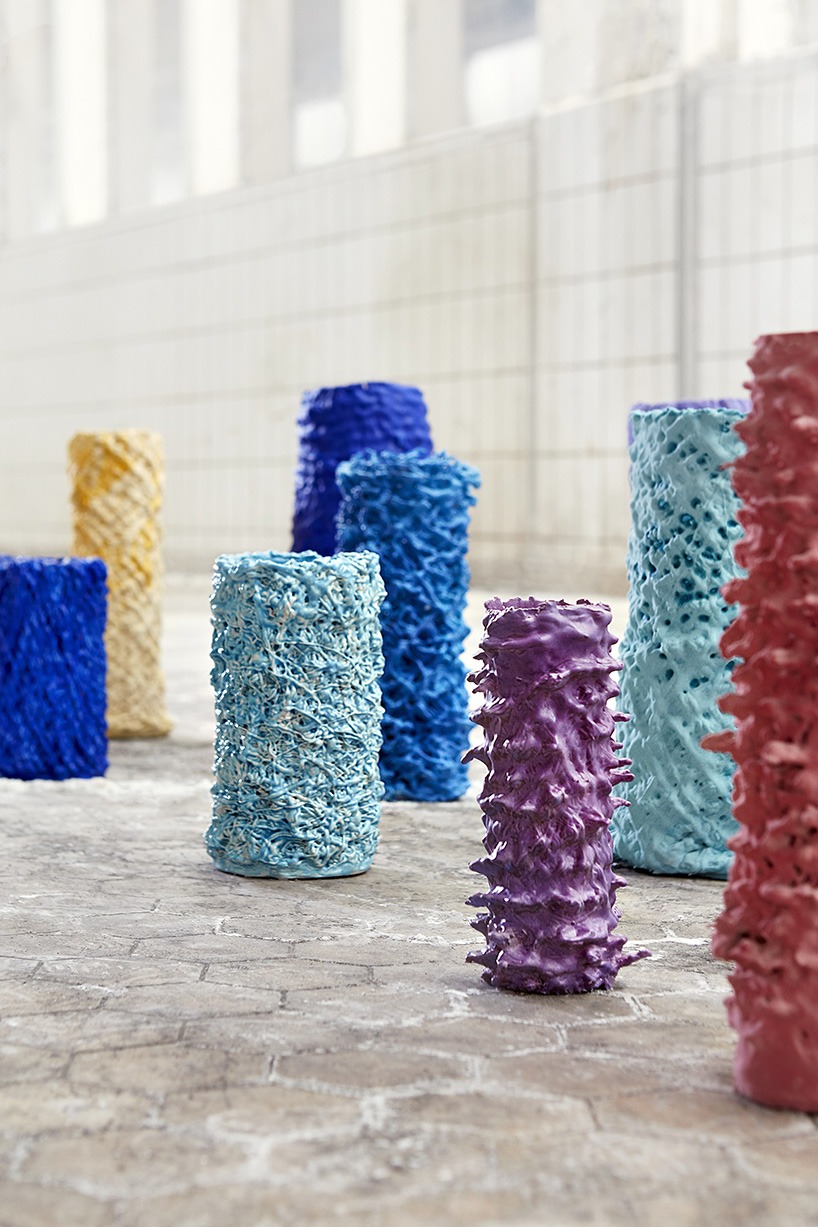 photo by ronald smits
photo by ronald smits
felix mollinga – databall_
felix mollinga has invented a playful way to help children who grow up in the digital world understand the true value of personal information. databall_ is a pinball machine that visualizes the flow of personal data, covering all aspects of daily digital life, from a chat history, to photos, and online purchases. (see designboom’s full coverage here)
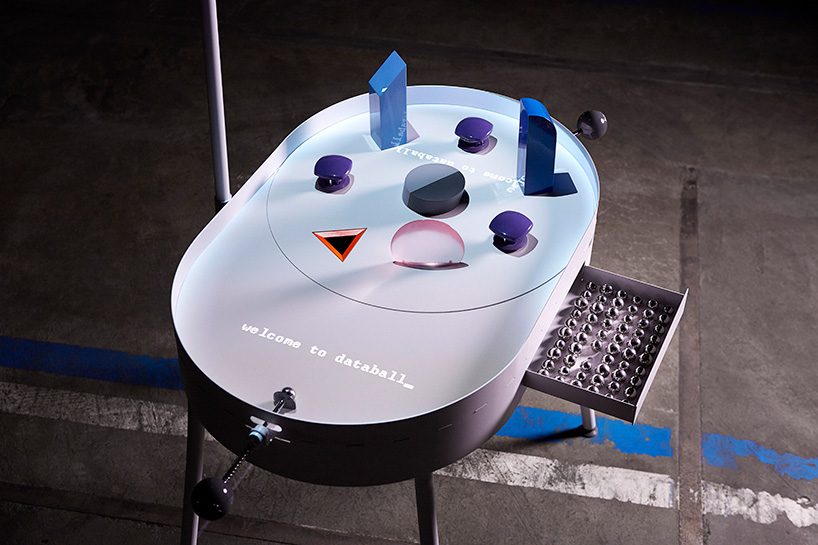 photo by nicole marnati
photo by nicole marnati
diego faivre – minute manufacturing
challenging the traditional ways we value objects, diego faivre has developed a manufacturing system in which he makes objects by the minute and estimates their cost according to the time he spent. the final cost is measure in custom ‘diego coins’, each coin worth a minute of production and equivalent of one euro, illustrating the popular saying: ‘time is money’. the man and leisure department graduate uses waste materials to make his products, including cardboard tubes, plastic boxes, and leather strips in the amount of time purchased, which he then covers with a colorful air-drying clay called ‘diego dough’. this project was realised in collaboration with scrap XL in rotterdam.
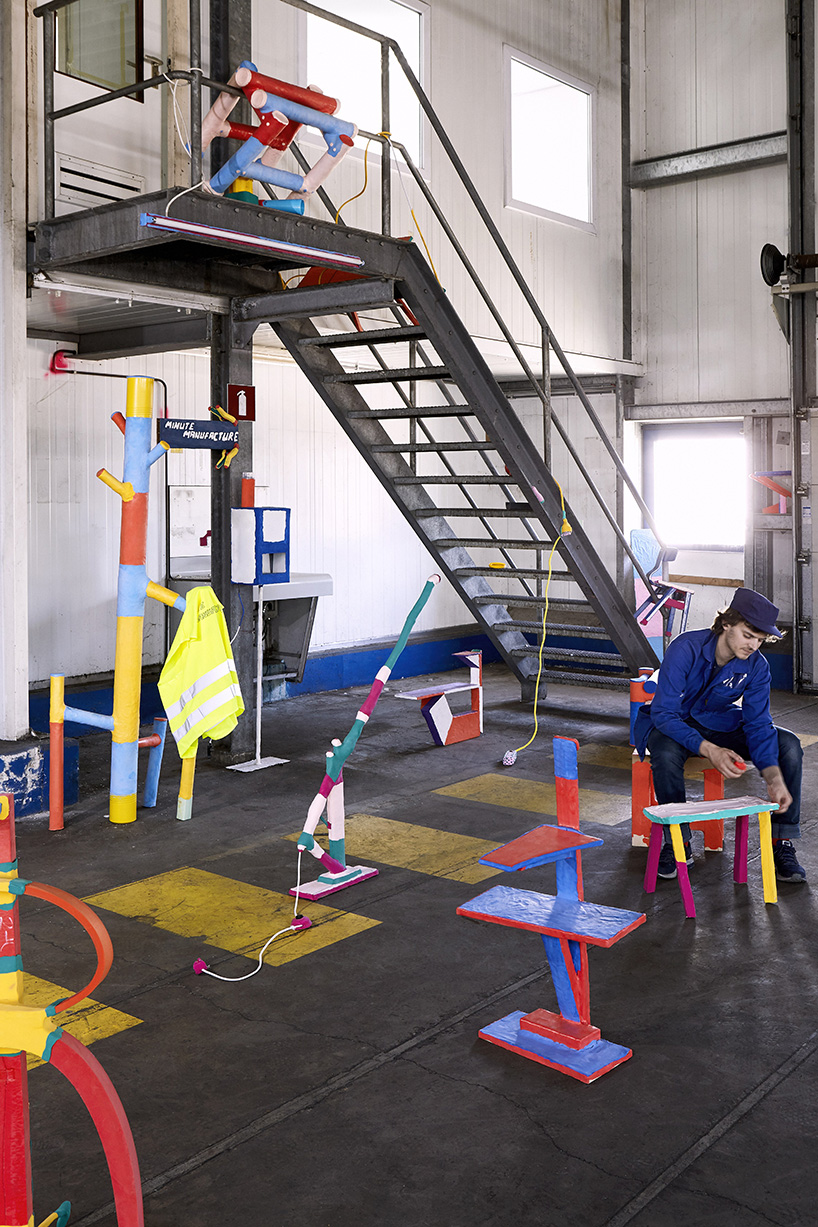
alexandra genis – atoma
alexandra genis’ atoma is a spice collection made up of molecular compounds responsible for different tastes which are modeled in cocoa butter and can be grated over any food. the project offers a more viable culinary approach for a future scenario of limited resources, equalizing the synthesized, artificial aromas with those naturally occurring in nature.
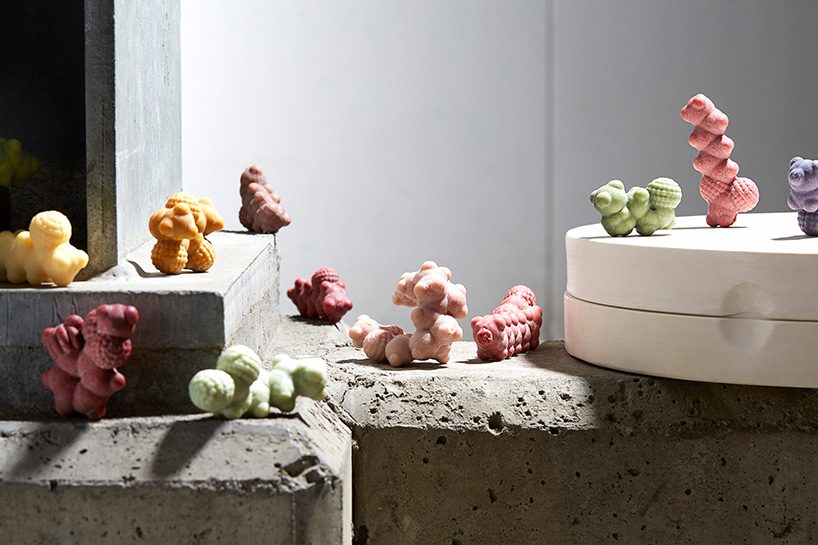 photo by nicole marnati
photo by nicole marnati
seokyung kim – the trace of sorrow
seokyung kim’s the trace of sorrow is a book of poetry that was written by a robot which educated itself as an author by processing 800 works of romantic literature — from tolstoy to brontë, joyce, and kafka. all the sentences in the book are made by an algorithm that finds possible patterns in word order, forming new and grammatically correct content. the project explores the relationship between a robots’s performance and the human nput.
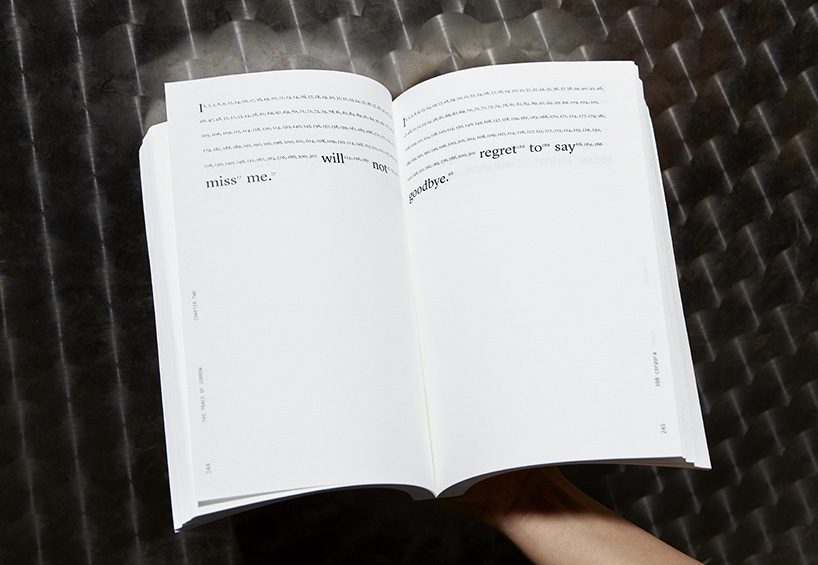 photo by femke rijerman
photo by femke rijerman
simón ballen botero – suelo orfebre
colombian designer simón ballen botero has worked with the community of the historic marmato region to transform a gold mining waste product into glass objects. using jagua, a byproduct usually discarded into the rivers, to create a variety of pieces, suelo orfebre offers environmental, social and economic benefits to the local community.
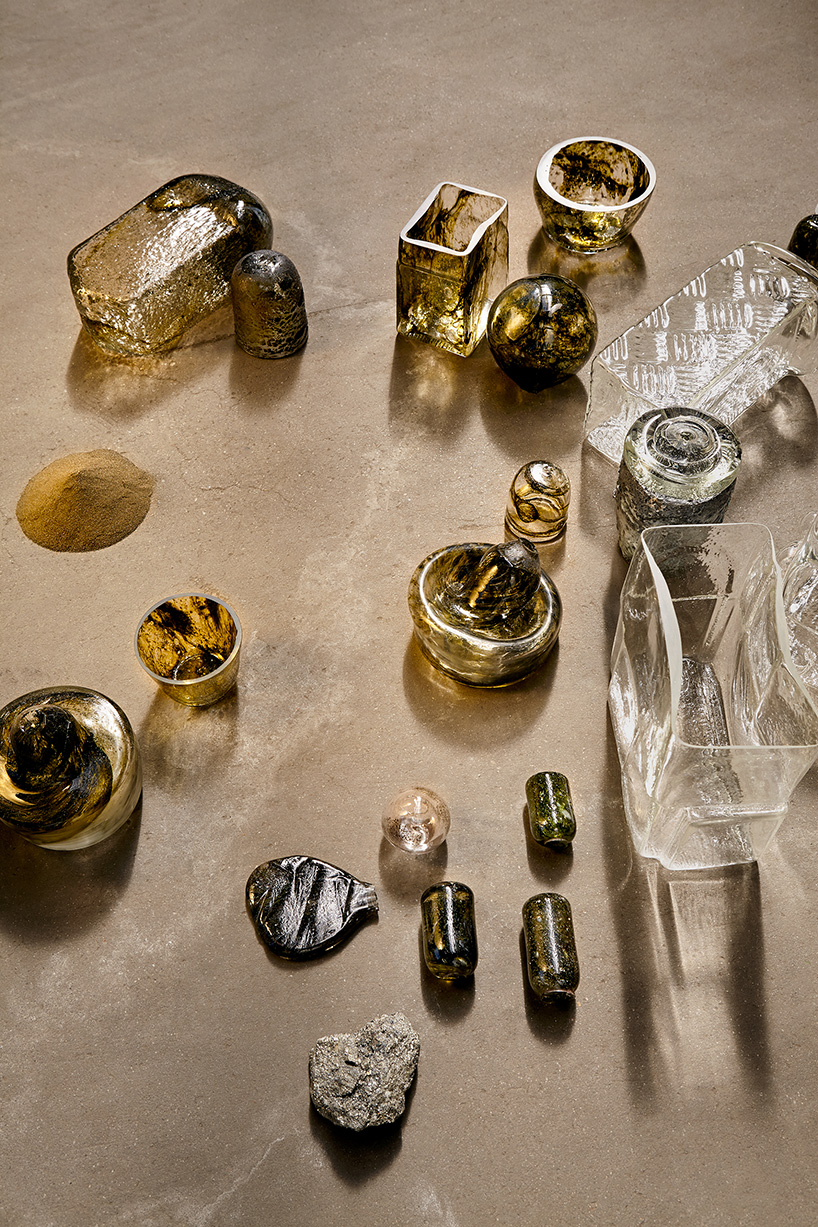 photo by femke rijerman
photo by femke rijerman
laila snevele – digital seasoning
laila snevele presents an installation of five visual digitalizations that stimulate one’s taste buds without showing edible ingredients or releasing their scent. digital seasoning combines empathy with material, color, facial mimicry, and overall feeling, to prove that taste is created mostly, if not entirely, in our minds. (see designboom’s full coverage here)
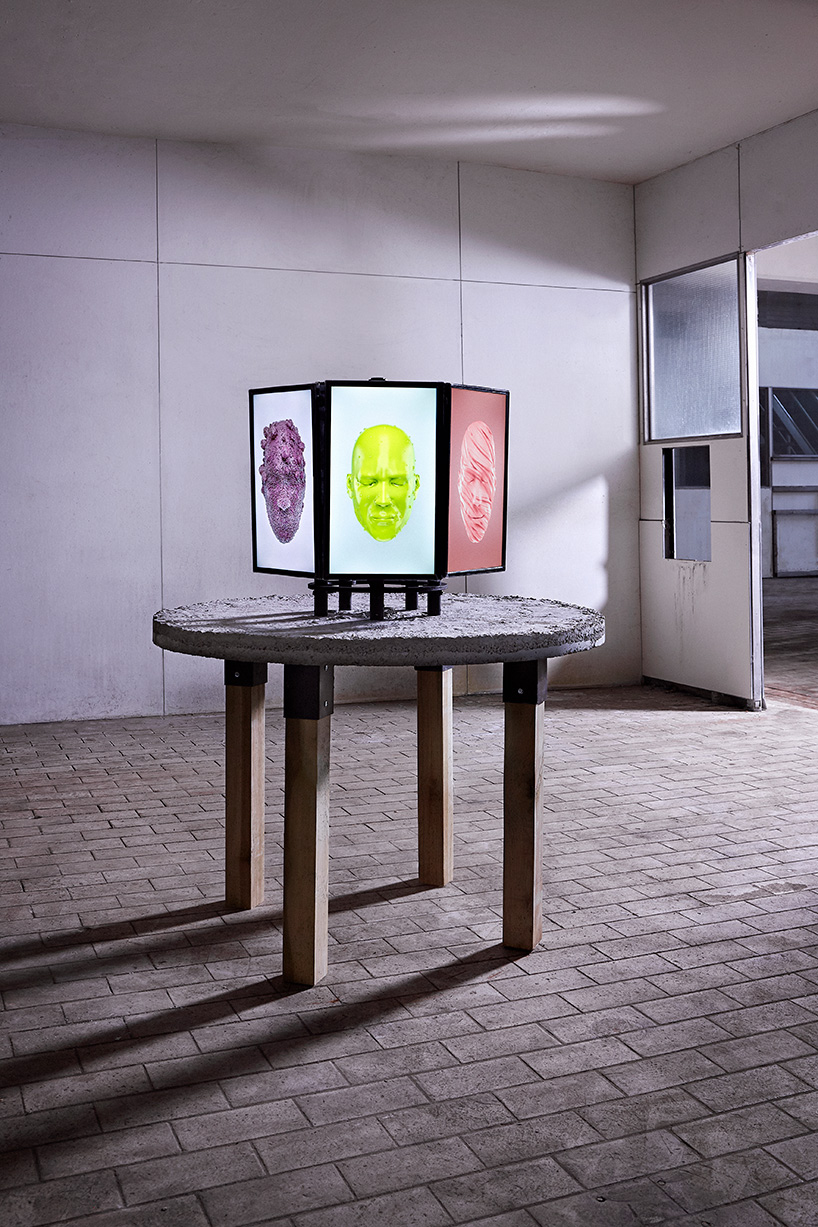 photo by ronald smits
photo by ronald smits
rosanne ahyi – infinite overfload
combining unrelated images found in 3D model libraries into alienating collages, rosanne ahyi illustrates the overload of visual information we face every day. her project, infinite overfload, questions the overwhelming accumulation of shapes and textures on those digital platforms by bringing to life random, absurd statues which are either 3D-printed, or cast from resin and plaster, cut from styrofoam, found, or bought at second-hand shops.
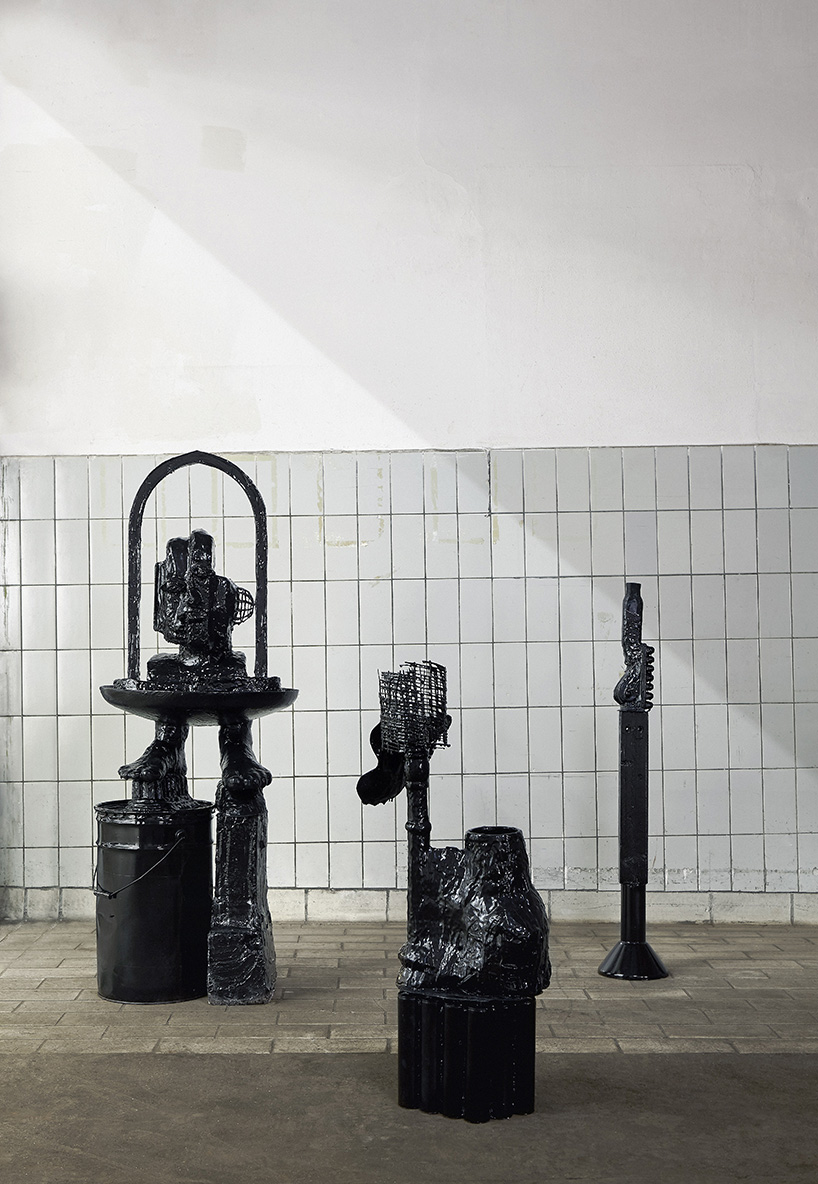
photo by femke rijerman
beer holthuis – paper pulp printer
beer holthuis has created the world’s first 3D printer that uses paper pulp instead of plastic. the man and mobility department graduate has repurposed the amount of paper we waste every year, which amounts to 80 kg per person, into a pulp that needs little natural binder, making the printed products endlessly recyclable.
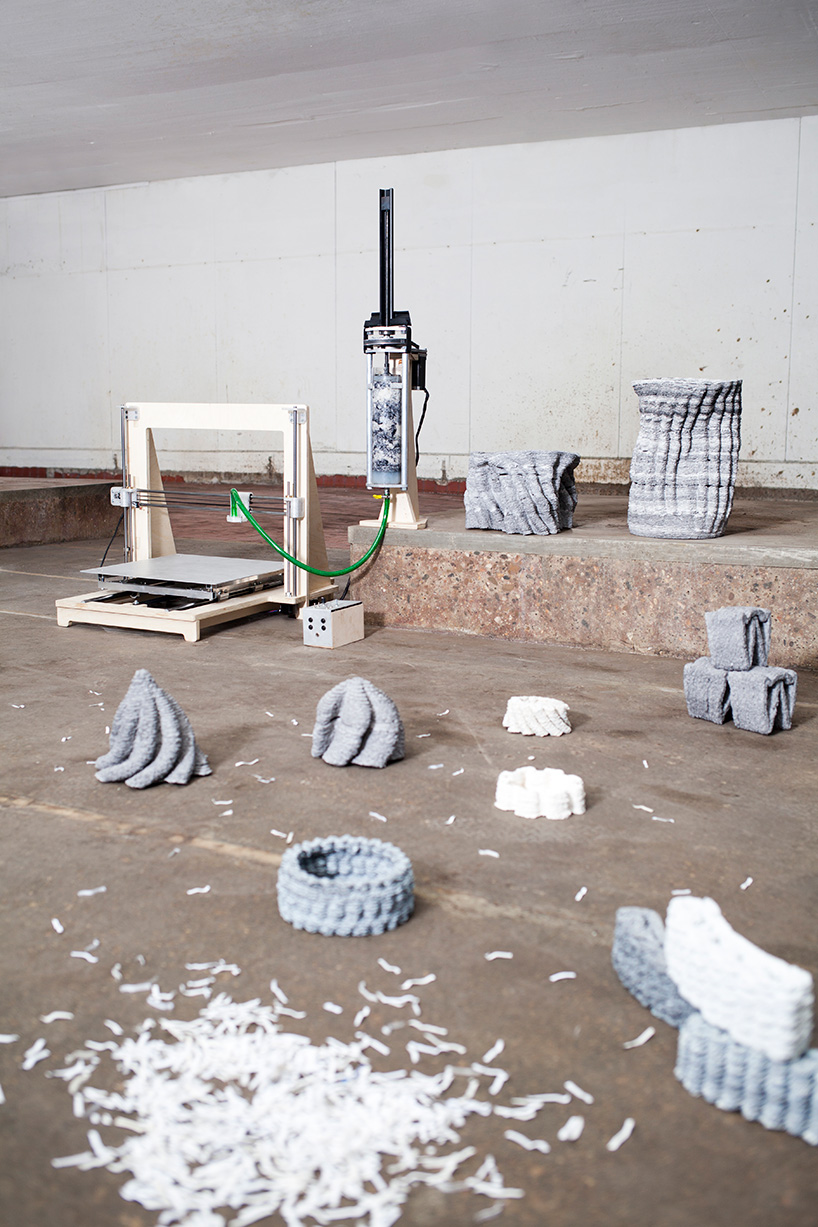 photo by iris rijskamp
photo by iris rijskamp
anna aagaard jensen – a basic instinct
anna aagaard jensen has created a collection of public seats for women only, which encourages them to clair their space in a way that comes naturally to the opposite sex: confidently leaning back, legs wide apart, and not worrying about what everybody else might think. the pink seats embody a provocative body language, with protruding legs, buttocks and even more, while their shape uplifts anyone seated on top, forcing them into a self-assured, ‘manspreading’ pose.
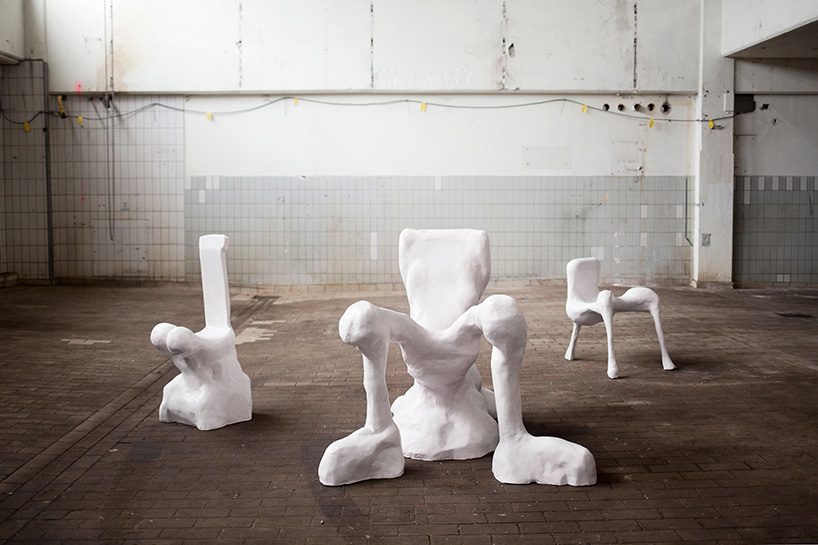 photo by iris rijskamp
photo by iris rijskamp
